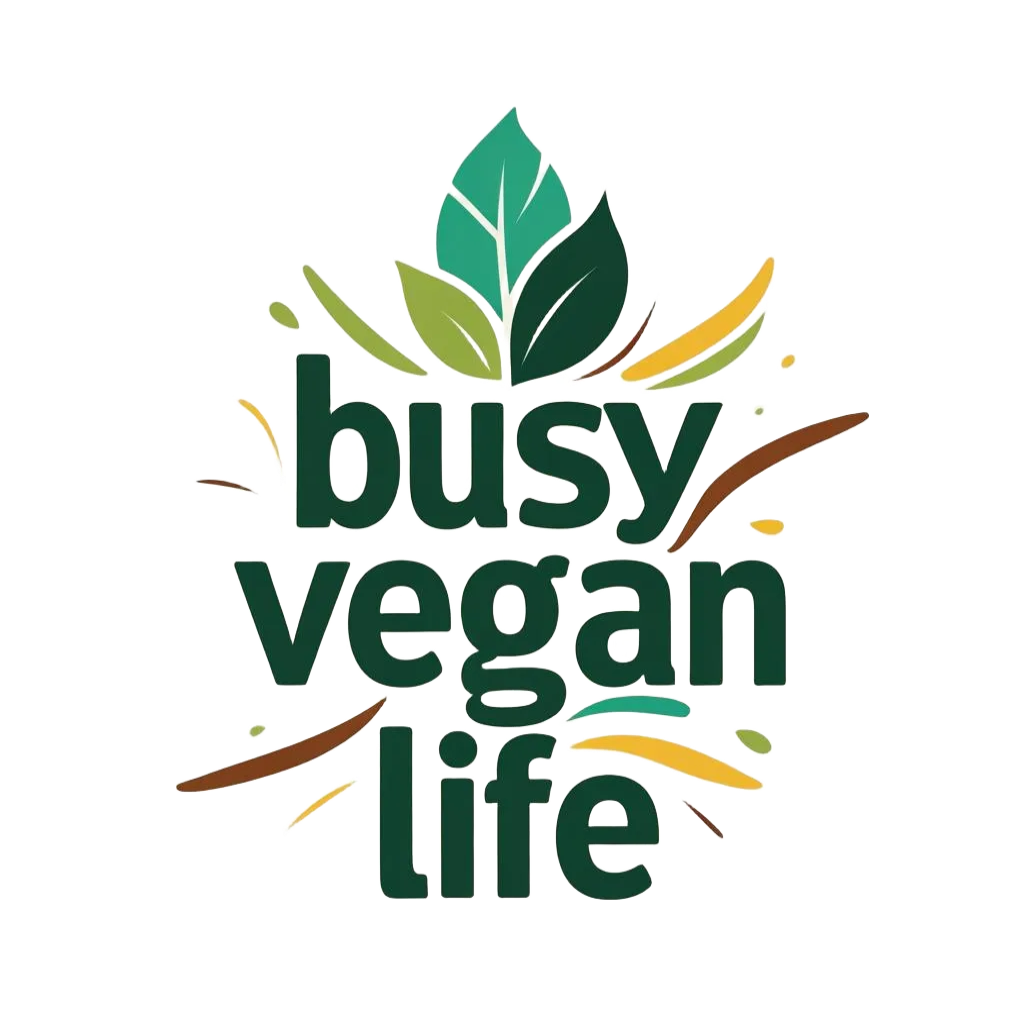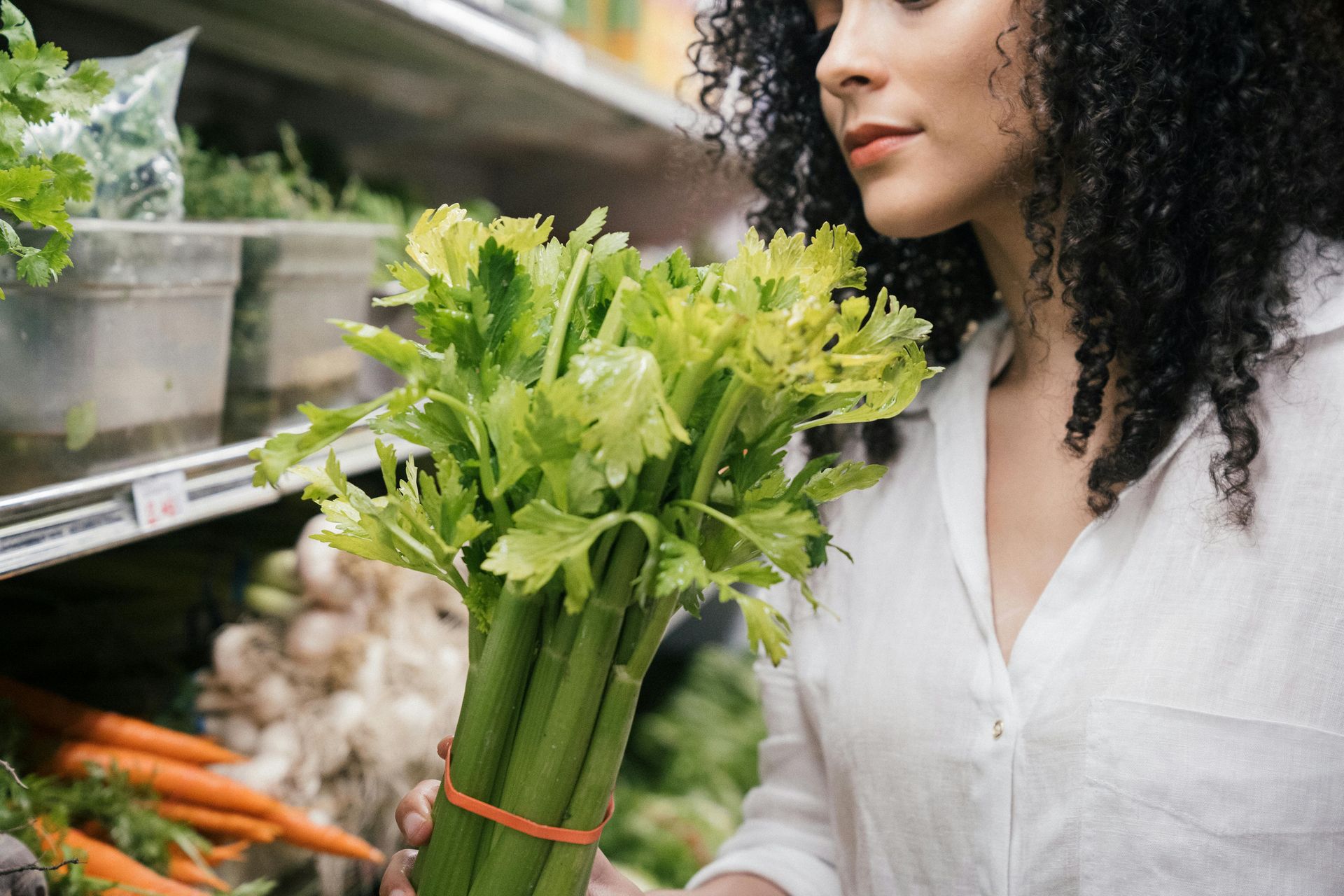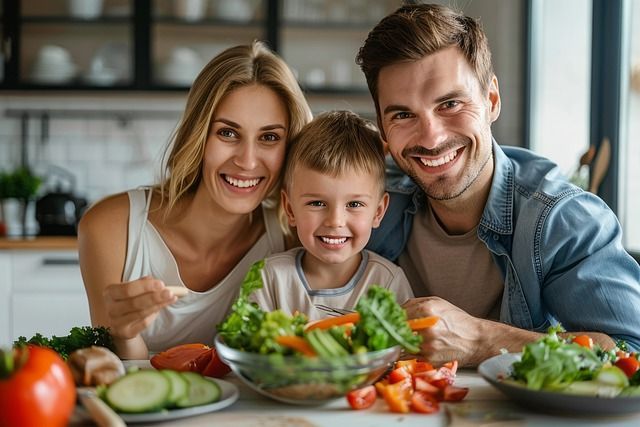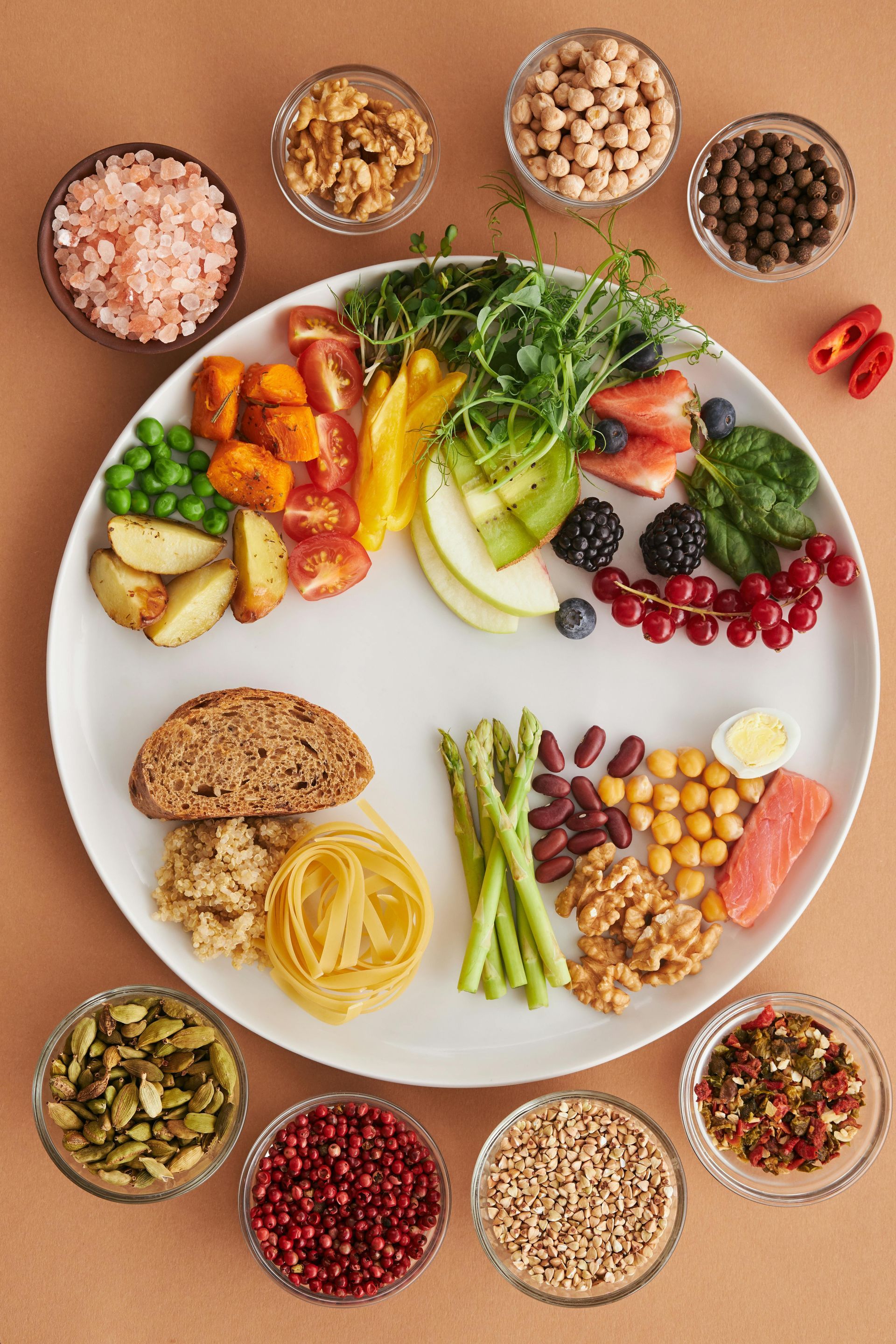How to Decline Non-Vegan Food at Social Events Without Being Rude

How to Politely Decline Non-Vegan Food: A Complete Guide to Avoiding Awkwardness
You're standing at the office holiday party, plate in hand, when your well-meaning coworker approaches with a slice of her "famous" cheesecake. "You absolutely have to try this. I made it last night!" she insists, with outstretched arms and sparkling eyes filled with pride. Your stomach drops. Here comes that familiar dance of how to politely decline non-vegan food without crushing her spirit or sparking an uncomfortable conversation about your dietary choices.
Sound familiar? Studies show that over 70% of social events include meat-based dishes, making it hard for vegans to feel included. Meanwhile, research suggests that 55% of vegans have experienced prejudice (so-called 'vegaphobia') in the workplace.
If you're a busy vegan parent, working professional, or student juggling multiple responsibilities, these vegan social situations when eating out as a vegan can feel overwhelming. But here's the truth: you can navigate these moments with grace, confidence, and kindness without compromising your values or damaging relationships.
Why Declining Non-Vegan Food Feels So Complicated
Social Pressure
Let's be honest, food is deeply tied to culture, family traditions, and social bonding. When you politely refuse non-vegan meals, you're not just declining food; you're potentially challenging someone's worldview, family recipe, or gesture of hospitality.
This pressure intensifies when you're:
- The only vegan at your workplace
- Navigating social pressure as a vegan parent at school events
- A student trying to fit in while staying true to your values
- Dealing with family members who "don't understand" your choices
The Emotional Weight
Beyond the social dynamics, there's an emotional component. Many vegans report feeling:
- Guilty for "inconveniencing" others
- Anxious about being perceived as difficult or picky
- Frustrated by repeated explanations of their dietary choices
- Isolated when food becomes a barrier to inclusion
The Art of Graceful Refusal: Your Vegan Etiquette Toolkit
1. The Simple "No Thank You" Method
Sometimes, the most effective approach is the simplest:
What to say:
- "Thank you so much for thinking of me, but I'm ok."
- "I appreciate the offer, but I'm not hungry right now."
- "That looks delicious, but I'm not hungry, thank you though!"
- “I ate a big [breakfast, lunch, late lunch etc. and I’m still stuffed.”
Why it works: You're not lying, being rude, or opening a debate. You're simply declining food as a vegan without offending by keeping the focus on your personal preference rather than their food choice.
2. The Redirect and Appreciate Strategy
What to say:
- "Thank you for offering! I actually brought something I'm excited to try. Have you tried the [vegan dish you brought]?"
- "I appreciate you thinking of me! I'm curious about your recipe, though. Where did you learn to make this?"
- “That looks great. Can you send me the recipe?”
Why it works: You're shifting the conversation from your dietary restrictions to their culinary skills, making them feel appreciated while gracefully declining.
3. The Health-Forward Approach
What to say:
- "I have some dietary restrictions, but thank you for the kind offer!"
- "I'm following a specific eating plan right now, but I appreciate you thinking of me."
- "My doctor has me on a particular diet, but that looks wonderful!"
Why it works: This approach removes moral judgment and makes your dietary choices feel medical rather than ethical, reducing potential conflict.
Scenario-Specific Scripts for Common Situations
Vegan Etiquette at Family Dinners
The Challenge: Grandma made her famous pot roast and can't understand why you won't "just try a little."
Your Response: "Grandma, I love that you wanted to make something special. I brought that [dish name] I was telling you about. Would you like to try some? I'd love to know what you think of it."
Pro Tip: Always bring a substantial vegan dish to family gatherings. It shows you're contributing, not just restricting. This is also a great way to introduce others to your diet and score a big win if they like it.
Handling Non-Vegan Offers at Work
The Challenge: Team lunch at a steakhouse, and everyone's ordering for the table.
Your Response: "I'll just grab something light from the sides menu. The salad options look great! Don't worry about me, I'm easy to please."
Follow-up: Use this as an opportunity to suggest vegan-friendly restaurants for future team outings.
Vegan Tips for Social Gatherings
The Challenge: Potluck dinner where everything contains cheese, meat, or dairy.
Your Response: "I brought plenty of my contribution, so I'm all set! But everything looks amazing. You guys are such talented cooks."
Strategy: Bring a hearty, crowd-pleasing vegan dish that can serve as your entire meal if needed.
Advanced Techniques for Persistent "Food Pushers"
When Someone Says "Just Try a Little"
Your Response: "I really appreciate you wanting to share with me. I'm pretty strict about my eating habits, but I'd love to hear about how you made this. It looks delicious!"
Dealing with Vegan Stigma at Parties
The Challenge: "Come on, one bite won't kill you!"
Your Response: "I'm sure it's delicious, but I'm one of those people who's pretty particular about my diet. Tell me about [change subject]. I heard you just got back from [trip/event]?"
Explaining Veganism to Non-Vegans (When You Must)
Keep it simple and positive:
- "I follow a plant-based diet. It works really well for my health and lifestyle."
- "I eat a vegan diet. It's been great for my energy levels and makes me feel good."
- "I've been plant-based for [time period], and I have never felt this good."
Essential Tools for Vegan Social Success
1. The Vegan Pocket Guide
Having quick, friendly responses at your fingertips can be a game-changer. The Complete Vegan Etiquette Guide includes printable cards with polite decline phrases for every situation. Perfect for busy vegan parents and professionals who want to feel prepared.
Why I recommend it: The guide includes culturally sensitive approaches for different communities and age groups. It’s incredibly helpful for vegan family dinner advice.
2. Portable Vegan Snacks from Thrive Market
Never get caught hungry at a non-vegan event again. I always carry Thrive Market's Emergency Vegan Snack Kit in my bag. It includes:
- Protein bars that don't scream "health food"
- Nuts and seeds in attractive packaging
- Dried fruit that feels like a treat
Pro tip: Having your own food makes declining others' offerings feel less awkward.
3. Conversation Starter Cards
These Vegan Conversation Starters help redirect food-focused conversations to more neutral topics. They're especially useful for vegan parent social tips when you're at school events or playdates.
Building Your Support Network
Find Your Vegan Allies
At Work:
- Connect with other vegans through company resource groups
- Partner with vegetarian colleagues for restaurant suggestions
- Build relationships with supportive omnivores who "get it"
In Your Community:
- Join local vegan Facebook groups
- Attend plant-based meetups in your area
- Use apps like HappyCow to find vegan-friendly restaurants and connect with like-minded people
Vegan Communication Tips for Different Audiences
For Colleagues:
- Focus on the practical: "I eat plant-based for health reasons"
- Emphasize commonalities: "I love trying new cuisines, but I stick to vegan options."
For Family:
- Lead with love: "I appreciate you thinking of me"
- Offer alternatives: "What if I bring a dish that everyone can enjoy?"
For Friends:
- Be honest but brief: "I'm plant-based, but I'm excited to hang out with you all"
- Suggest activities beyond food: "Want to grab coffee instead of dinner?"
Your Emergency Response Kit
Quick Phrases for Any Situation
The Appreciation Approach:
- "Thank you for the kind gesture, but I'm all set."
- "I appreciate you thinking of me, but I brought something I'm excited about."
The Health-Focused Response:
- "I have some dietary restrictions, but thank you!"
- "I'm following a specific eating plan right now."
The Redirect and Bond:
- "That looks amazing! Where did you learn to make it?"
- "I'd love to hear about your cooking process. I'm always interested in recipes."
What to Bring to a Non-Vegan Potluck
Crowd-Pleasers That Don't Scream "Vegan"
- Loaded nachos with cashew cheese
- Chocolate avocado mousse
- BBQ jackfruit sliders
- Mediterranean quinoa salad
- Coconut curry soup
Pro tip: Use Veestro's meal service for professionally prepared vegan dishes that impress omnivores.
Teaching Kids to Navigate Vegan Social Situations
Vegan Student Social Advice
Role-play common scenarios:
- Birthday parties with non-vegan cake
- School lunch trades
- Sleepovers with non-vegan families
Teach them confident responses:
- "I eat different foods than you, but thanks for offering!"
- "I brought my own snacks, want to try some?"
- "I'm vegan, which means I eat plants. It's pretty cool!"
Vegan Tips for Work Potlucks (When You're a Parent)
Prepare your kids for school events:
- Pack appealing vegan alternatives
- Communicate with teachers beforehand
- Bring enough vegan treats to share
Connect with other parents:
- Start conversations about inclusive food options
- Offer to coordinate with other families
- Share easy vegan recipes for class parties
Advanced Strategies for Challenging Situations
Dealing with Persistent Family Members
The Boundary-Setting Conversation: "I understand my food choices might seem different, but they're important to me. I'd love our family gatherings to focus on spending time together rather than what I'm eating. Can we agree on that?"
The Compromise Approach: "How about I bring a few dishes that everyone can enjoy? That way, there's something for everyone, and you don't have to worry about accommodating me."
Navigating Cultural Food Traditions
Research cultural vegan alternatives:
- Many traditional cuisines have naturally vegan dishes
- Learn about plant-based versions of cultural foods
- Respect traditions while honoring your values
Example responses:
- "I love the tradition behind this dish. I've been exploring plant-based versions of traditional foods. Have you ever tried [vegan alternative]?"
Creating Inclusive Spaces as a Vegan
How to Advocate for Vegan Options at Events
When planning events:
- Suggest restaurants with vegan options
- Offer to research inclusive venues
- Volunteer to coordinate food that works for everyone
When attending events:
- Bring something substantial to share
- Focus on abundance, not restriction
- Express gratitude for efforts to include you
Building Bridges, Not Walls
Lead by example:
- Bring delicious vegan food that wows omnivores
- Share recipes when people ask
- Focus on the positive aspects of your lifestyle
Stay curious:
- Ask questions about others' food traditions
- Show interest in their cooking methods
- Find common ground in your shared love of good food
Your Action Plan for Vegan Social Success
Week 1: Prepare Your Toolkit
- Practice your go-to decline phrases
- Stock up on portable vegan snacks
- Identify 3-5 crowd-pleasing vegan dishes you can make
Week 2: Build Your Network
- Connect with one vegan-friendly colleague or friend
- Join a local vegan group or online community
- Research vegan-friendly restaurants in your area
Week 3: Test Your Skills
- Use your new phrases in low-stakes situations
- Bring a vegan dish to a small gathering
- Practice redirecting conversations
Week 4: Expand Your Confidence
- Attend a larger social event
- Offer to help plan an inclusive meal
- Share your positive vegan experiences with others
Final Tips on Declining Non-Vegan Food Politely
Declining non-vegan food politely isn't about perfection—it's about preparation, confidence, and kindness. You don't need to justify your choices to anyone, but you can navigate social situations with grace and build bridges rather than walls.
Remember: every positive interaction you have as a vegan helps normalize plant-based living for others. Your confident, kind approach might inspire someone else to explore veganism or simply become more inclusive in their own food choices.
Ready to take action? Start with one small step this week. Practice your go-to phrase, stock up on portable snacks, or connect with one vegan-friendly person in your community. Small actions build into sustainable confidence.
Want more support? Download our free Vegan Social Conversation Starter Kit with printable response cards, designed specifically for busy vegan parents and professionals.
This post may contain affiliate links so I earn from qualifying purchases at no extra cost to you.
Love what you read? Check out The Busy Vegan Blog for more articles with practical solutions for those unique challenges vegans face on.
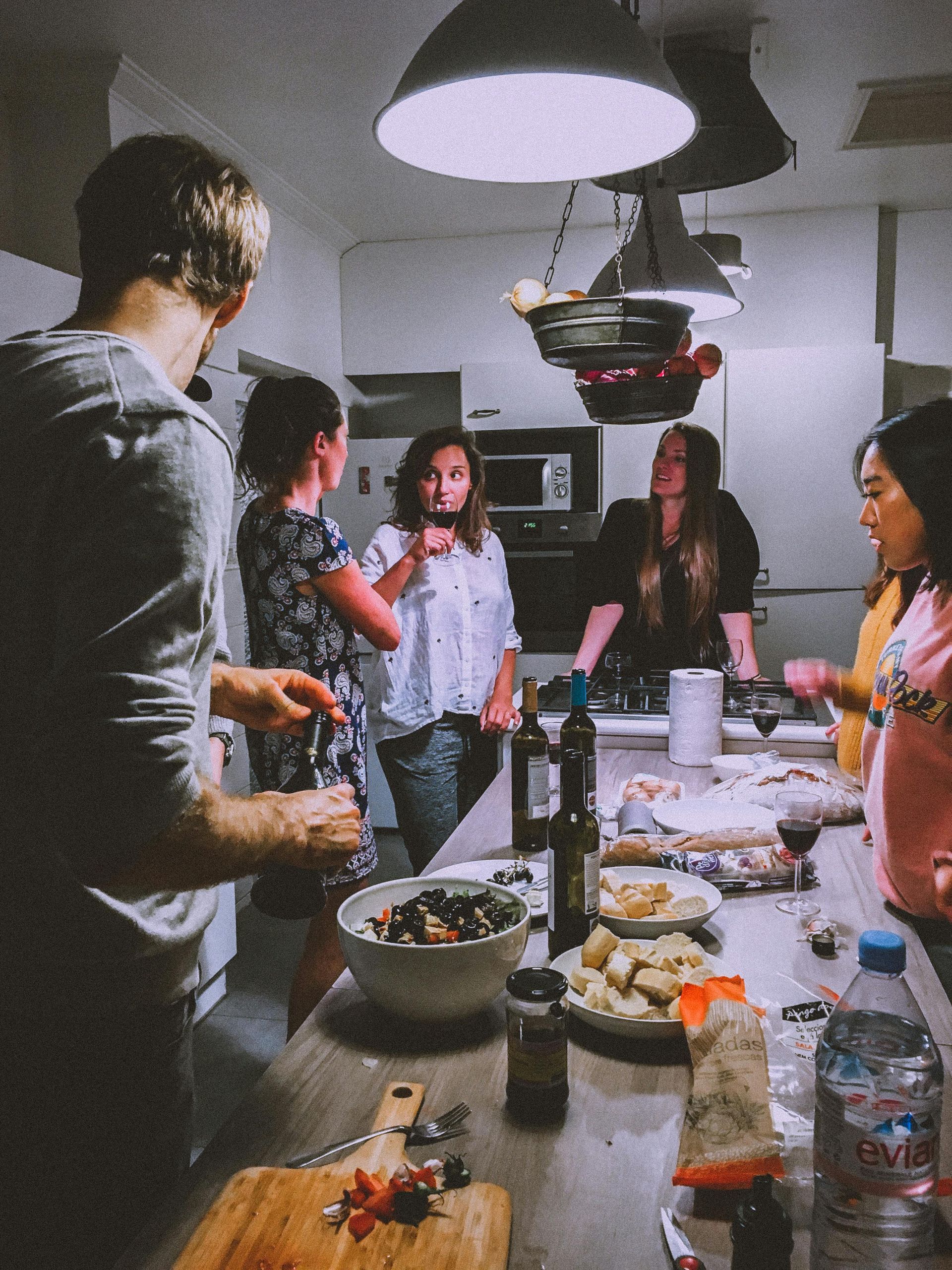
Frequently Asked Questions About Declining Food at Social Events Without Awkwardness
What should I say when offered non-vegan food?
Keep it simple and appreciative: "Thank you for thinking of me, but I'm all set!" or "I appreciate the offer, but I have some dietary restrictions." Focus on gratitude rather than explanation.
How do I handle 'just try a little' pressure?
Redirect the conversation: "I'm sure it's delicious, but I'm pretty particular about what I eat. Tell me about how you made this. It looks amazing!" This shifts focus from your restriction to their achievement.
What if someone gets offended when I decline their food?
Remember that their reaction is about them, not you. Respond with empathy: "I can see you put a lot of love into this. I hope you know how much I appreciate the thought behind it."
Should I explain why I'm vegan when declining food?
Only if directly asked, and keep it brief and positive. Focus on your personal journey rather than ethical arguments: "I follow a plant-based diet, and it's been really great for my health and energy."
How can I make sure my kids feel confident declining non-vegan food?
Practice role-playing different scenarios at home. Teach them confident, kid-friendly responses like "I eat different foods, but thanks!" and always send them with appealing vegan alternatives.
What's the best way to handle family gatherings as a vegan?
Bring substantial vegan dishes to share, focus conversations on family connections rather than food, and express gratitude for efforts to include you. Consider having a respectful boundary-setting conversation if needed.
How do I deal with vegan stigma at work events?
Keep your approach professional and health-focused. Suggest inclusive restaurant options for future events, and always contribute something delicious that showcases how good vegan food can be.
What should I bring to a non-vegan potluck?
Choose crowd-pleasing dishes that don't immediately scream "vegan"—think loaded nachos with cashew cheese, chocolate avocado mousse, or BBQ jackfruit sliders. Bring enough to serve as your main course if needed.
Subscribe to The Busy Vegan Blog
Thank you for subscribing the Busy Vegan Blog. We'll send you budget-friendly vegan options, quick recipes, meal prep ideas, and helpful tips to support your vegan lifestyle.
Oops, there was an error sending your message. Please try again later.
